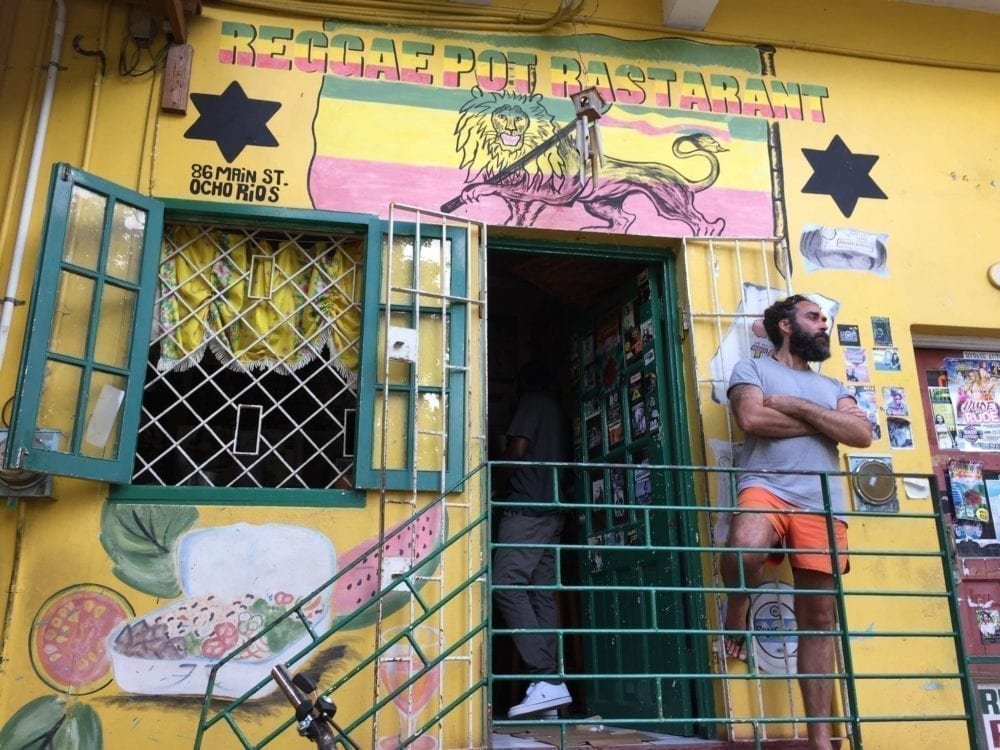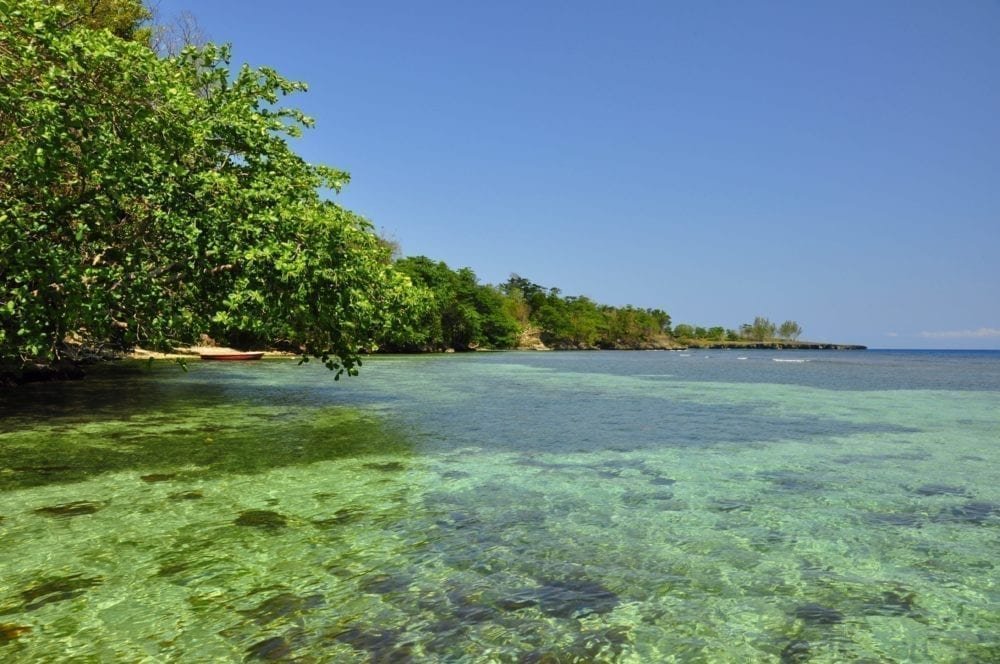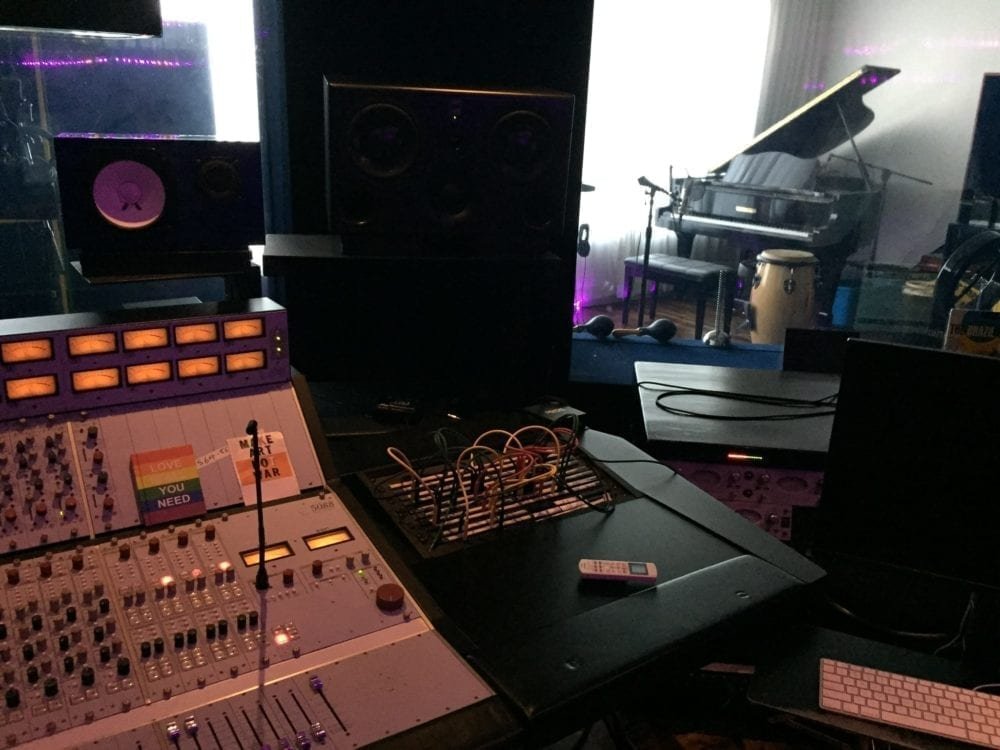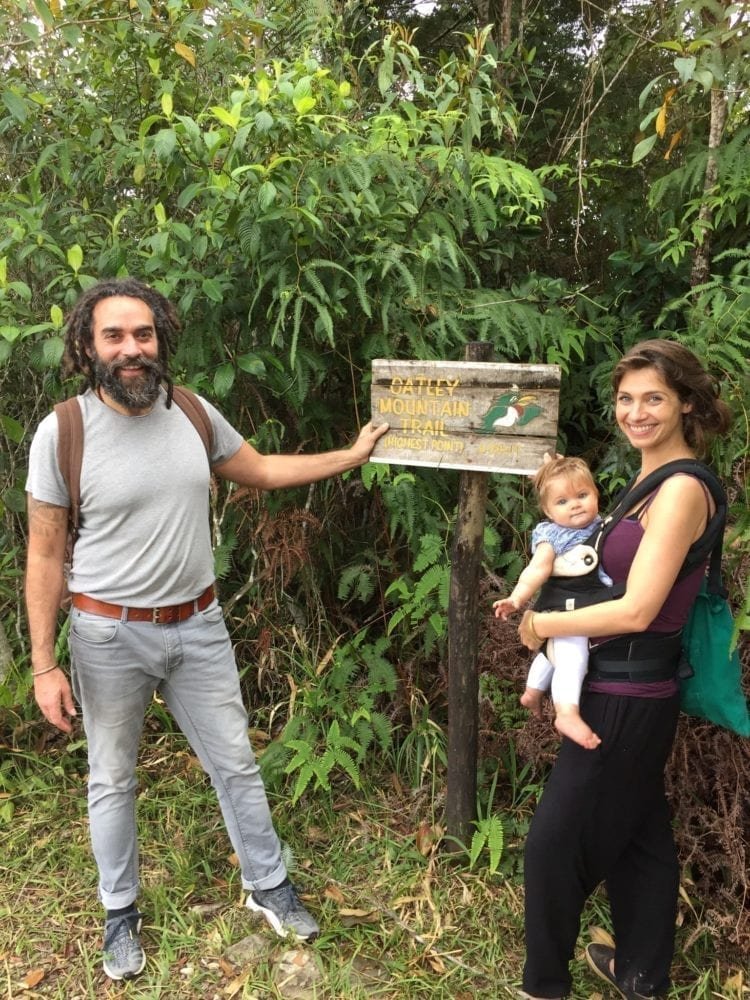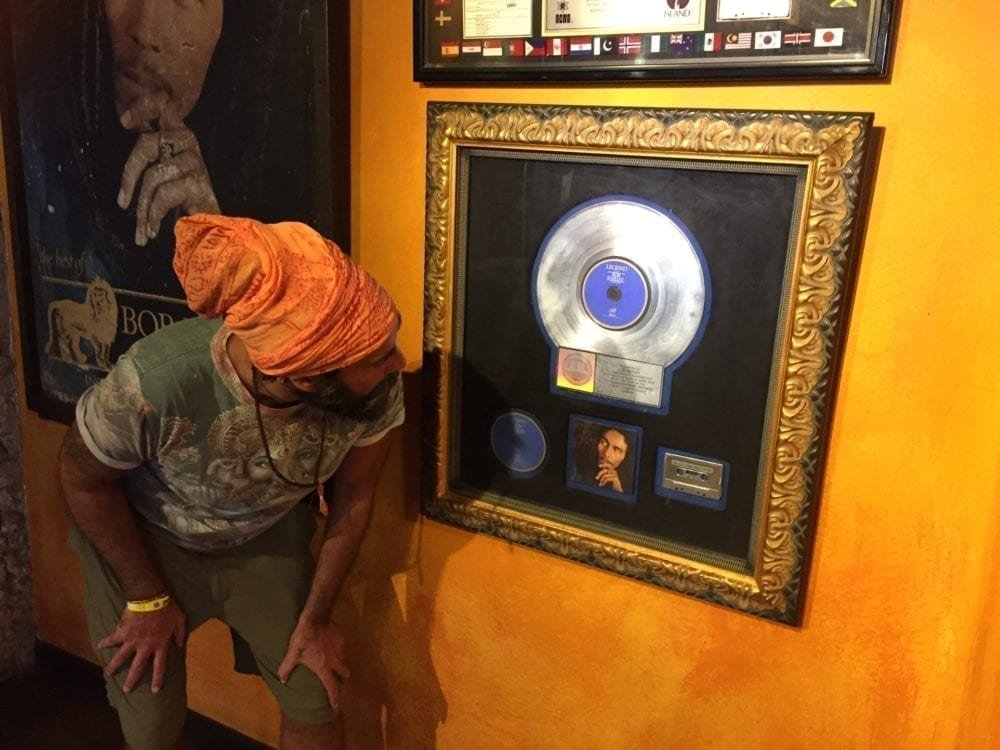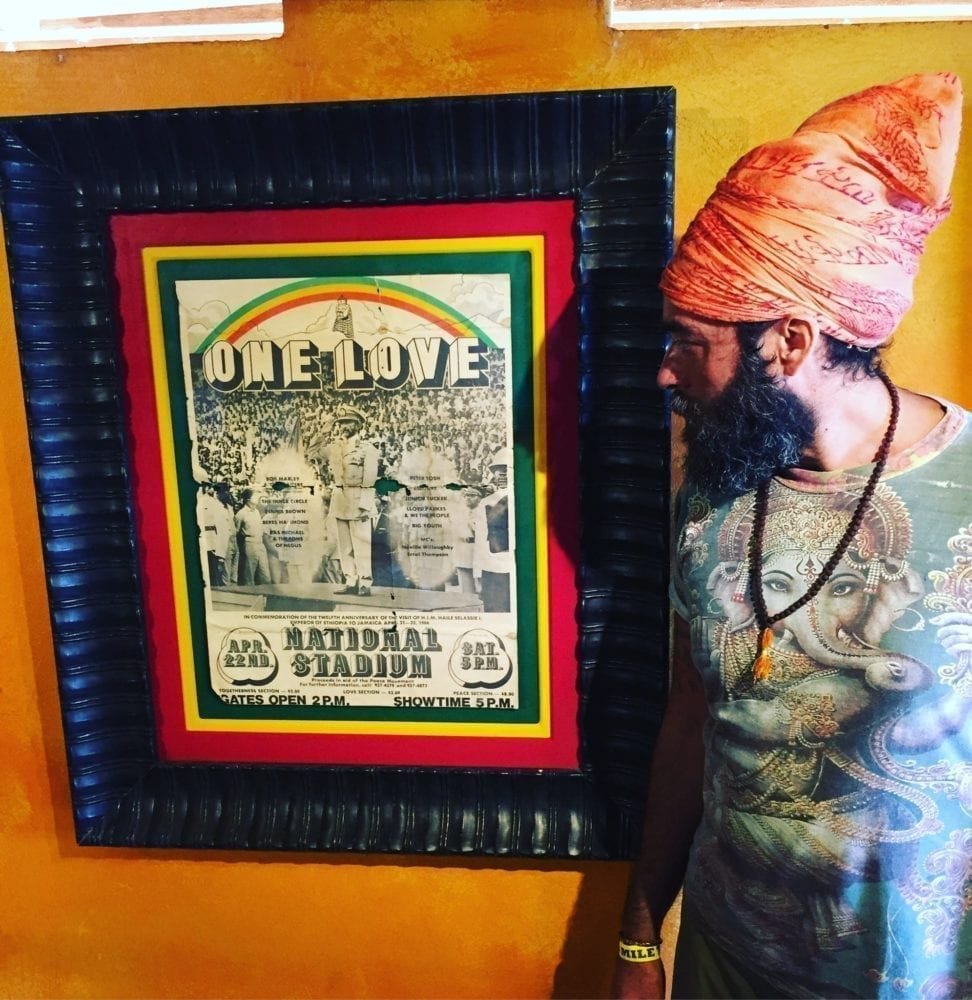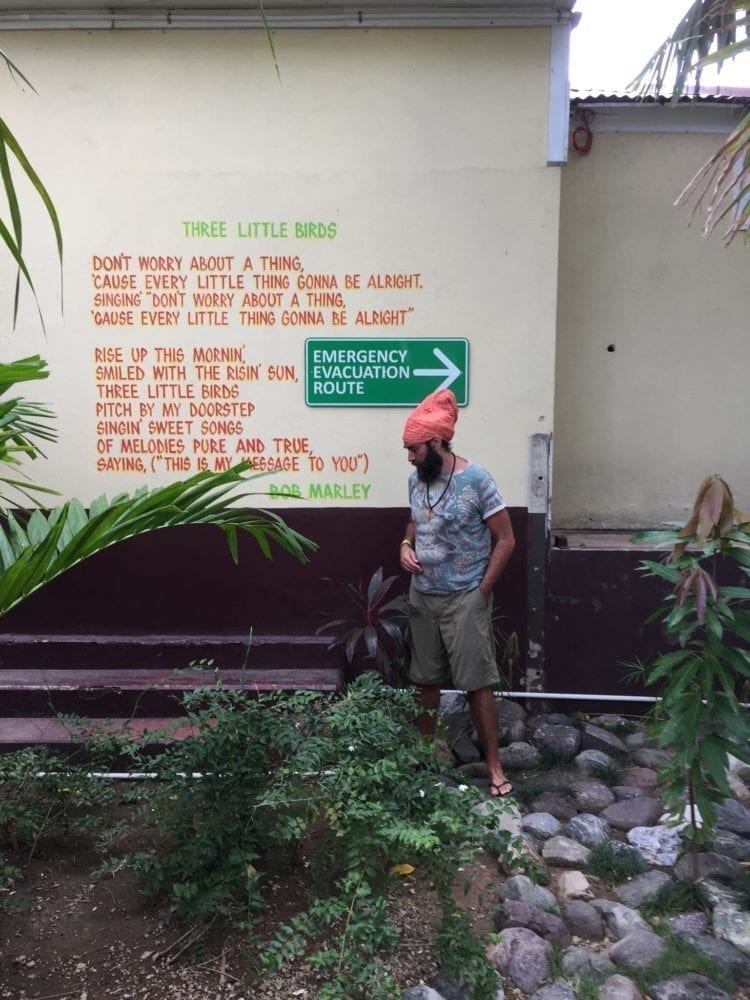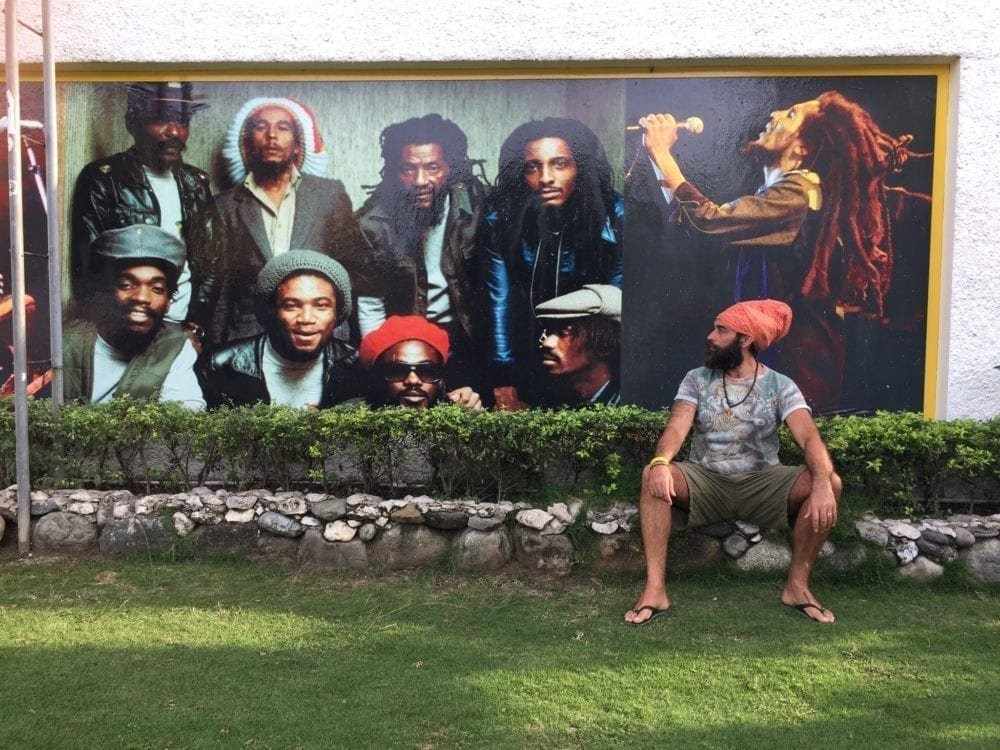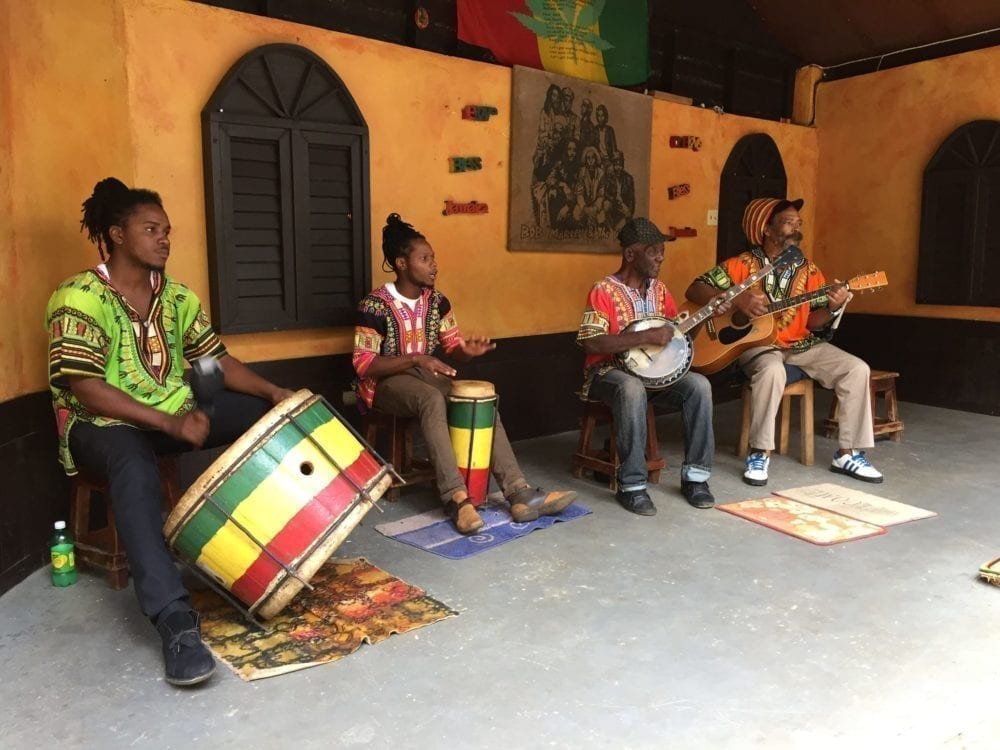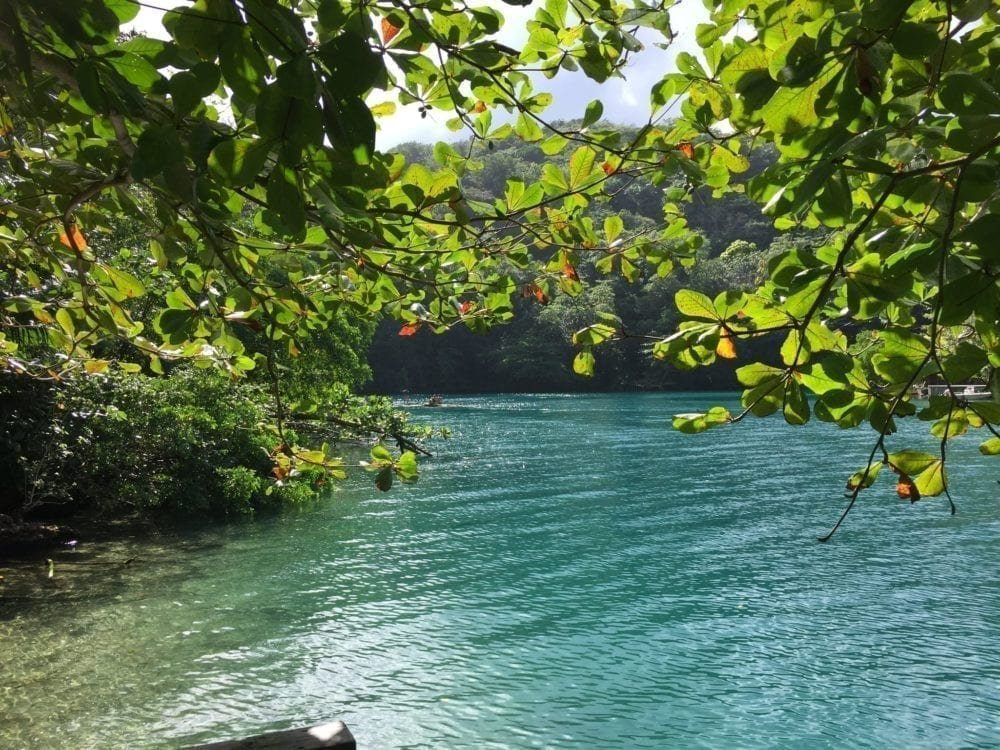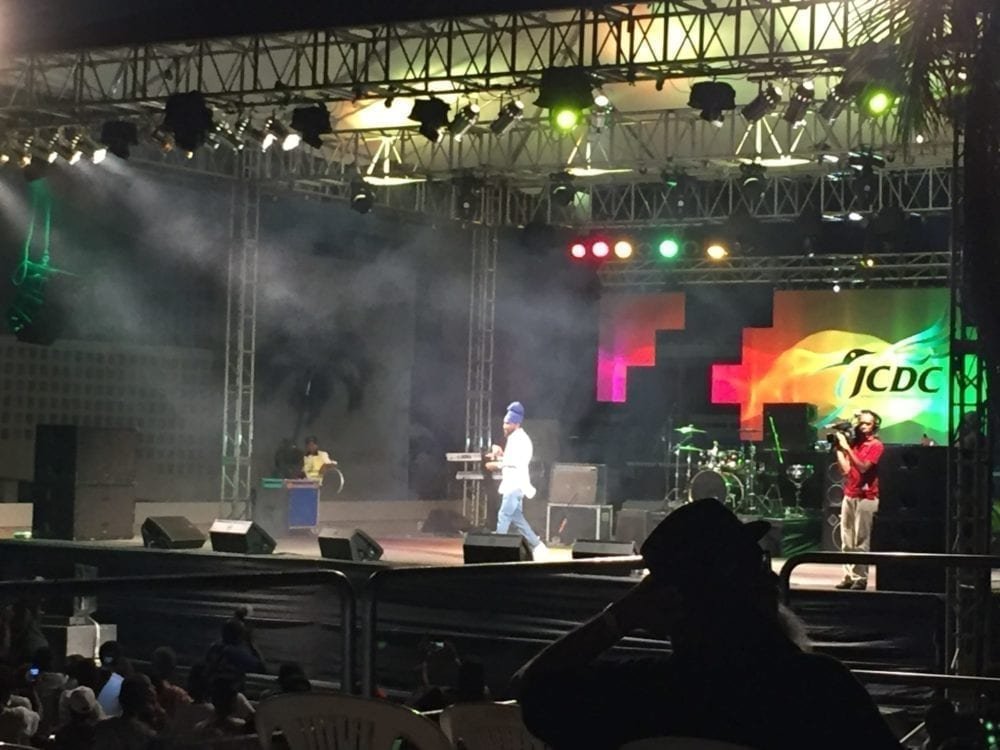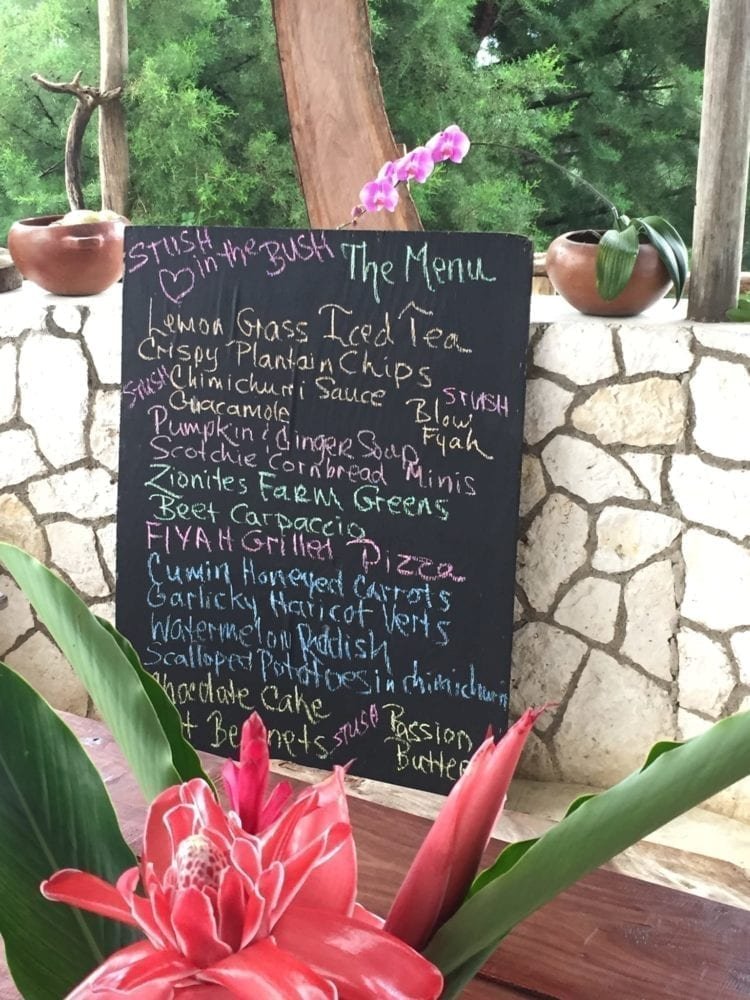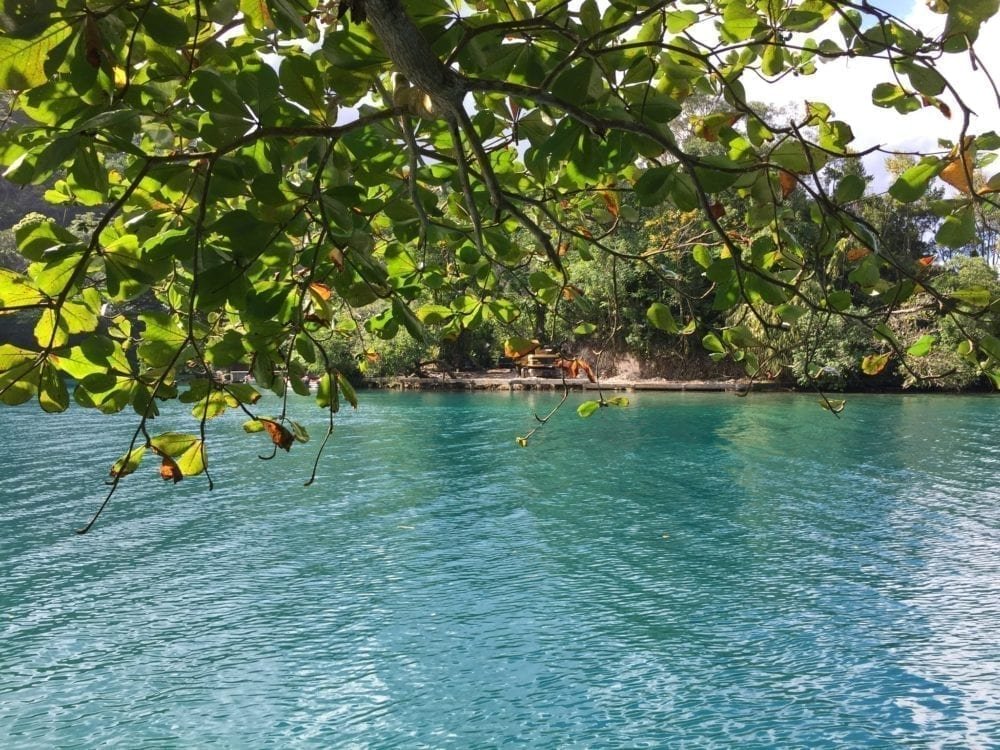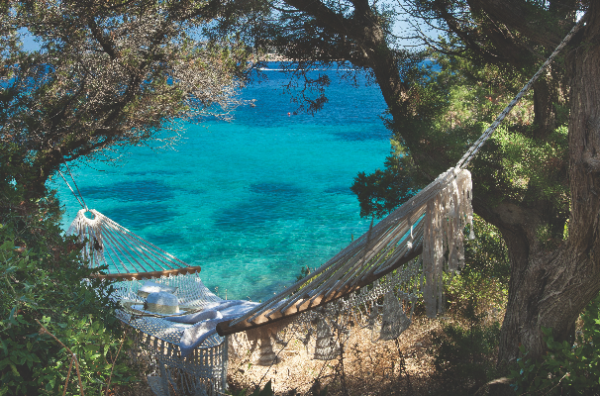Countries with big personalities can inspire very mixed views from those who haven’t visited – and one thing Jamaica has in abundant supply is personality.
The island has been calling me for as long as I’ve been singing Jammin’ – the lyrics to which were perhaps some of my earliest words. Nearly all of my parents’ friends were from the West Indies, so I listened to conversations in Patois and enjoyed a diet of ackee, salt fish and friend dumplings until I left home at 15.
Reggae music got me through what seemed to be a major struggle as a youth. Melodies rooted in a deep primal bassline – guided by the voice of love in protest against a history of pain – formed the main soundtrack to my existence, and they seem all the more urgent in today’s mad world.
Looking back I could relate to what was being sung; even if I didn’t understand the words at the time, I could feel the message.
My most prolific memory is the music of Bob Marley and the Wailers, which is still deeply engrained in my soul.
What’s in the water?
As my feet touched Jamaican soil for the first time in December 2016, I couldn’t help but wonder how this small island has managed to produce so much awesomeness. It’s the only country to have created five different recognised genres of music: reggae, mento, ska, rocksteady and dancehall – an achievement so culturally significant that in 2015 Kingston became a new member of the UNESCO Creative Cities Network.
Aside from the music, some of the world’s best coffee comes from the Blue Mountain range, an area rich in biodiversity that boasts many endemic species. The coffee beans grow between 2,000 and 5,000 feet above sea level, a Goldilocks altitude at which the beans mature slowly and develop flavours gradually without getting scorched by the West Indian sun.
But perhaps most outstanding of all is the iconic status of some of the individuals born in Jamaica. Alongside Bob Marley, the man who moved masses, is the man who moves fastest: Usain Bolt. Others include Peter Tosh, another member of the Wailers, whose museum has recently opened in the heart of Kingston. It’s a small but beautifully curated celebration of Tosh’s life, death and influence, and a must-see for any reggae fans – particularly those visiting Kingston during National Reggae Month (February, to coincide with Bob Marley’s birthday on the 6th).
Doing things differently
The more I learned about the incredible things and people to come out of Jamaica, the more ironic it seemed that this island is so totally dependent on imports – and so far from self-sufficiency. I heard an incredible statistic that the value of all Jamaica’s exports doesn’t even begin to cover the cost of the fuel it imports over the same period. In other words, if Jamaica sold everything it managed to produce in a year, it wouldn’t cover the island’s bill for the petroleum products that keep the islands cars, planes, boats and kitchen stoves running – and that are burned to produce electricity.
During our stay, it wasn’t hard to spot the divide between those who recognised the urgency of switching to a more sustainable lifestyle and those who clung to the glamour of five-star luxury, private clubs and jet skis. Jamaica offers both extremes – in perhaps their most extreme guises – so it’s no wonder that this island has a constant flow of tourists. They visit for everything from romantic palm-fringed weddings and all-night parties to secluded birdwatching tours and hikes through the cloud forests in the Blue Mountains.
Those who have chosen to establish businesses in harmony with Nature have often been driven by deep personal conviction, and in many cases their success has come against the odds in a country that’s not famed its eco credentials. Two glowing examples are Hotel Mockingbird Hill and Stush in the Bush.
Stush in the Bush
Jamaica may be famed for its jerk chicken (not to mention its jerk goat and, well, jerk anything really), but the Rasta movement has ancient links to veganism. The ‘Ital’ diet centres on unprocessed food that’s locally grown – and you can’t get more local than the farm-to-table experience at Stush in the Bush. Chris and Lisa’s restaurant is an extension of their stunning home, in the middle of a 15-acre certified organic farm in the cool peaks of Free Hill, St Anne.
The journey there’s not for the faint-hearted, but once close Chris will come and pick you up in his 4×4 and chaperone you for the last leg (meaning booking really is essential). Stush in the Bush is a feast for all the senses; from the beautiful open dining area we were treated to sweeping views of Jamaica’s north coast while we devoured plate after plate of fresh plantain and dasheen chips with smashed avocado and a signature Blow Fyah Scotch Bonnet Pepper Sauce. That was just the starter.
All meals are dictated by the seasons and what’s available at the time of your visit, and you can absolutely trust Chris and Lisa to create the most delicious and decadent feast, brimming with flavour and bursting with love. ‘Stush’ means ‘fancy’ in Patois, and this is posh nosh like you’ve never had it before. It will leave you feeling like you’ve just had your engine retuned.
Hotel Mockingbird Hill
Hotel Mockingbird Hill offers another kind of fine dining experience; the food prepared by the Mille Fleurs restaurant was an absolute treat: fresh, locally sourced ingredients were woken up with Jamaican flavours and presented with beautiful attention to detail.
Nestled between Port Antonio and the Blue Mountains, this hotel has been dubbed the place for birdwatchers to go if their partner hates birdwatching. It’s a fitting description. Sit on the balcony with a coffee for five minutes and you’ll see something of interest; a flock of yellow-billed parrots flew right in front of us as we ate breakfast.
The sprawling gardens of this 7.5-acre property are recommended by Birds Of the West Indies; 22 of the 28 Jamaican endemics – plus six Caribbean endemics – can be found there without much effort at all. The black-billed streamer tailed hummingbird is a regular visitor to the lush gardens – and with no TV or phones on site to distract you, you’re almost guaranteed to catch sight of one of these tropical beauties.
A sprinkle of stardust…
Port Antonio is the capital of the parish of Portland – the north-eastern section of the island to which many Jamaicans escape to get a break from the heat and bustle of Kingston. And you can see the attraction: this is the home of the Blue Lagoon, where the warm Caribbean Sea mixes with icy cold water from underground streams, creating a magical experience. The lagoon has drawn Hollywood stars ranging from Errol Flynn and Elizabeth Taylor to Harrison Ford, Tom Cruise and Cameron Diaz.
Musicians have also bathed in the turquoise waters of the lagoon thanks to its proximity to Geejam – a hotel with its own studio. Amy Winehouse, Snoop Dog, John Legend and Grace Jones have all recorded material there, and no doubt enjoyed the delicious cocktails.
You can see why it’d be hard to leave the Blue Lagoon without a sense you’ve absorbed a touch of its stardust. Some won’t want to leave at all – so the good news is that Kanopi House has direct access, and its tree houses are well worth checking out if you want a secluded spot for a romantic break.
Portland escape
Portland has so much to offer; it was Jamaica’s original tourist destination until the all-inclusive addiction took hold and wrist-tagging hotels emerged to satisfy it. Thankfully Portland is fully open for business; it’s the place to go if you want to raft eight miles down the Rio Grande, taste the best jerk flavours on the island or explore the beautiful Frenchman’s Cove.
Just a short drive away is Holywell – the Blue and John Crow Mountains National Park. 3,000ft above sea level, the cool air provides a welcome break from the heat and there are plenty of short – or long – treks to enjoy. We managed easily with our nine-month-old daughter in a sling, and completed a lovely route in just a few hours. On-site cabins provide a perfect escape if you’re looking to reconnect with Nature and kick back for a great big dollop of R&R.
Another famous attraction in the area is Dunns River Falls in Ocho Rios, which is about as touristy as it gets in Jamaica. It was a lot of fun climbing that sublime and ancient waterfall, holding hands in an okey-cokey chain and navigating this natural and protected oasis whilst sandwiched between two rather large American ladies who had come straight in off the cruise ship.
 Play Video about This Rock Might Just Save The World
Play Video about This Rock Might Just Save The World Play Video about Play 2 hours of rock
Play Video about Play 2 hours of rock Play Video about Play 2 hours of brook
Play Video about Play 2 hours of brook Play Video about Play 2 hours of sheep
Play Video about Play 2 hours of sheep

















